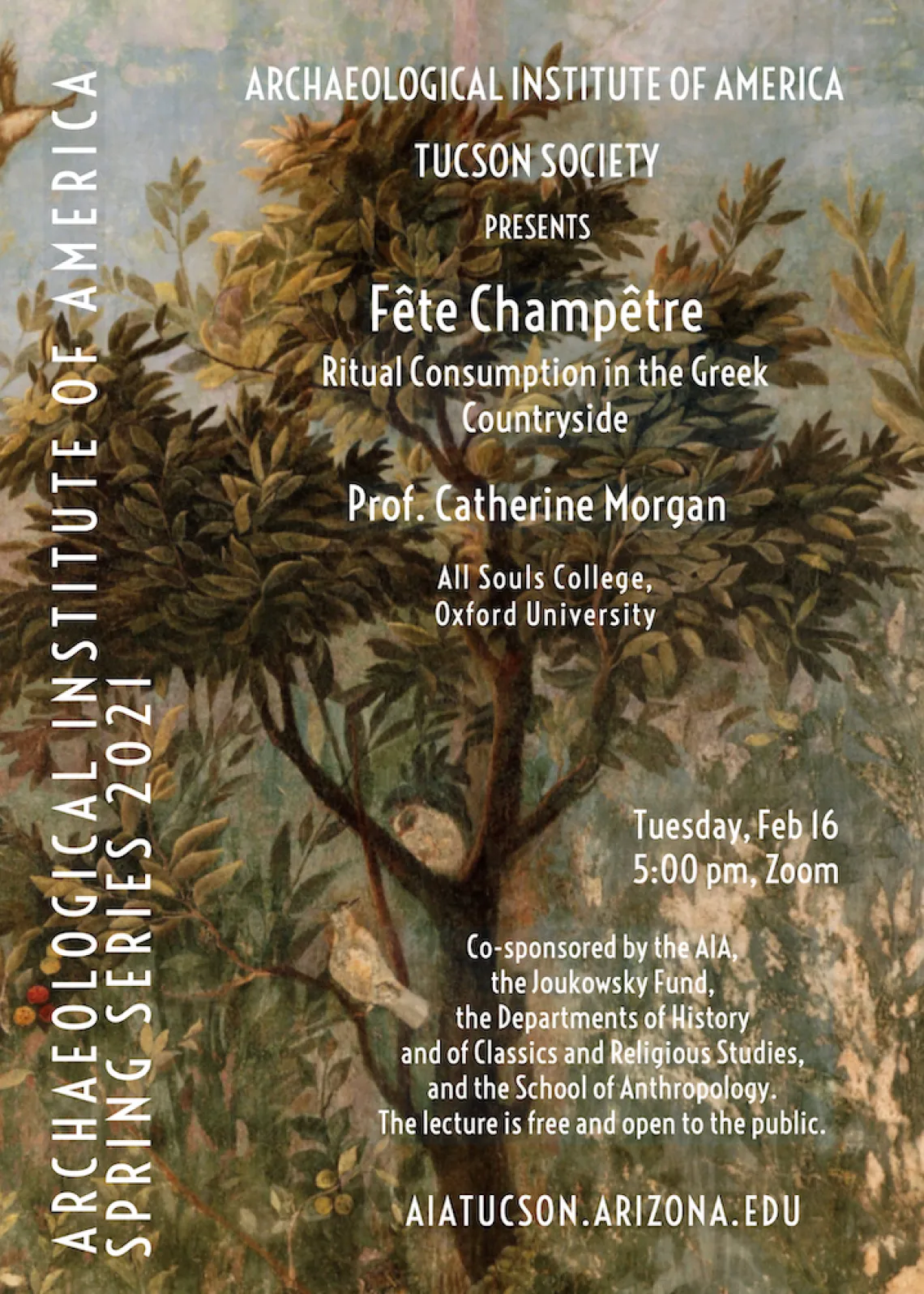
When
Where
The Archaeological Institute of America (AIA) Tucson Society Spring 2021 Series presents, "Fete Champetre: Ritual Consumption in the Greek Countryside," with Professor Catherine Morgan, All Souls College, Oxford University. This event will be hosted on Tuesday, February 16, 2021, at 5:00pm using Zoom Meetings. Please register in advance of the event!
Archaeological research over the past thirty years has highlighted rural gatherings, sacrifice, and feasting as central aspects of Early Iron Age ritual practice in many parts of Greece.
A growing body of evidence confirms that such organized events in the countryside continued into Hellenistic times, underlining the need to look broadly at the relationship between shrines of all kinds within the ritual landscape of each community.
Reviewing the rich and varied record, we will consider the locations (coastlines, passages between environments and other rural landmarks) and the nature of the spaces involved. While the material record includes a rich range of miniature vessels and offering containers, provision for the preparation, serving, and consumption of food and drink forms a major part of the record at many sites. Consumption was a key part of ritual events even when they were held far from significant settlements or facilities for food preparation. We will examine ceramic evidence for feasts and the practicalities of their organization and set the results into the wider context of scholarship feasting, focusing on the creation of temporary settings, rustic and rural. The study of these practices contributes to our understanding of how, in a region of intense personal mobility, local identities were shaped, visitors welcomed, and migrants variously acknowledged and reintegration after periods abroad.
This event is co-sponsored by the AIA Society of Tucson and Southern Arizona, the Joukowsky Fund, the Department of Classics and Religious Studies in the College of Humanities at the University of Arizona, and the University of Arizona School of Anthropology.

